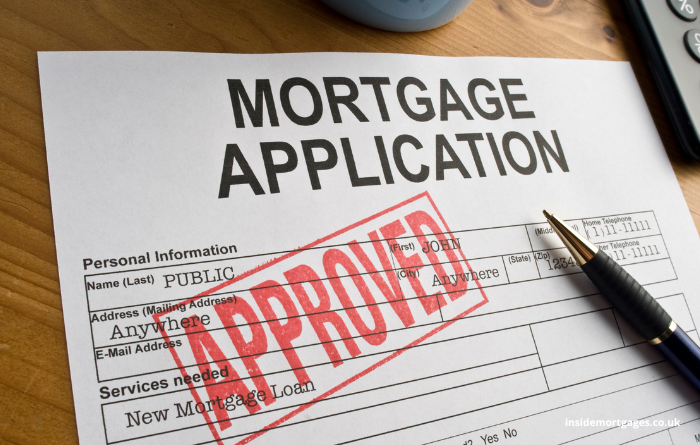How To Fix The Things That Stop You Getting A Mortgage
Buying a house is a significant milestone for most people, but it can also be a stressful experience. One of the most significant hurdles to overcome when purchasing a home is getting approved for a mortgage, so how can you solve the problems that might stop you getting a mortgage in the first place?
While getting a mortgage might seem straightforward, it is not always easy to secure one. Several factors can make it difficult or impossible to obtain a mortgage. Here is a simple guide to some of the most common things that can stop you getting a mortgage and how to overcome them.
Poor Credit History
One of the most significant factors lenders consider when evaluating mortgage applications is your credit history. A low credit score or a history of missed payments can signal to lenders that you might not be a reliable borrower. If your credit score is below the lender’s threshold, you might be denied a mortgage or offered a loan with unfavorable terms.
Fixing Poor Credit History
Fixing a poor credit history involves taking steps to address the factors that have contributed to a low credit score. This may include reviewing your credit report for errors and disputing them, paying bills on time, reducing debt balances, and limiting new credit applications. Additionally, maintaining a low credit utilization rate and keeping old credit accounts open can help improve your credit score over time. While improving your credit history may take time and effort, it can ultimately help you access more favorable loan terms and improve your overall financial standing.
Insufficient Income

Lenders typically require borrowers to have a steady source of income that is sufficient to cover their mortgage payments. If you have a low income or a lot of debt, lenders may be hesitant to approve your application. In some cases, you might be asked to provide additional documentation to verify your income, such as bank statements, tax returns, or employment contracts.
Fixing Low Income
Boosting low incomes for a mortgage application may involve taking steps to increase your earning potential. Consider seeking out additional sources of income, such as part-time work or freelance opportunities. Alternatively, you may look into ways to increase your current income, such as negotiating a raise or seeking additional training or certifications in your field. In some cases, it may also be helpful to reduce monthly expenses or consolidate debts to improve your debt-to-income ratio. Overall, taking a proactive approach to improving your financial situation can help increase your chances of securing a mortgage and achieving your home ownership goals.
High debt-to-income ratio
Your debt-to-income ratio (DTI) is the percentage of your monthly income that goes towards paying off your debts. Lenders typically want to see a DTI of 43% or lower. If your DTI is higher than that, you might struggle to get approved for a mortgage. To lower your DTI, you could consider paying off some of your debts or increasing your income.
How To Improve A High Debt-To-Income Ratio
Resolving a high debt-to-income ratio involves taking steps to reduce your monthly debt payments and/or increase your monthly income. Consider paying off high-interest debts first or consolidating debts to a lower interest rate. You may also negotiate with creditors to lower monthly payments or interest rates.
Alternatively, you could look into ways to increase your income, such as taking on a second job or freelance work. In some cases, it may also be helpful to adjust your budget to reduce monthly expenses. Overall, taking proactive steps to improve your debt-to-income ratio can help improve your financial standing and increase your chances of being approved for a mortgage.
Age Restrictions
Not every first time homeowner is in their twenties. If you’ve been saving for a long time and are purchasing your first home as an older adult, you may find that age restrictions can prevent you from getting a mortgage because lenders may see older borrowers as higher risk.
Lenders use age limits to determine the length of the mortgage term, the maximum age at which the loan must be repaid, and the affordability of the mortgage payments. For example, if a borrower is close to retirement age, a lender may be concerned about their ability to continue to make mortgage payments if their income decreases after retirement.
Overcoming Age Restrictions
There are a few strategies you can use to improve your chances of approval when age restrictions might be holding you up. One option is to work with a mortgage broker who has experience working with older borrowers and can help you find lenders who are more flexible with age requirements.
Another approach is to consider alternative types of financing, such as a reverse mortgage or a home equity loan, which may have more lenient age restrictions. You can also take steps to strengthen your overall financial profile, such as improving your credit score, reducing your debt-to-income ratio, and increasing your income through part-time work or investments.
Inadequate Deposit

When you apply for a mortgage, you are usually required to make a deposit payment which is a percentage of the total cost of the property’s purchase price that you have to pay upfront. Most lenders require at least 10-20%, but some lenders will accept much lower 5% deposits too. If you don’t have enough savings or can’t borrow enough money to meet the deposit requirements, you might not be able to get a mortgage, or if you can get one, you will be subject to much higher interest rates.
How To Overcome A Small Deposit
Overcoming an inadequate deposit for a property purchase can be challenging, but there are several strategies you can consider. First, you may explore alternative financing options, such as government-backed loans or shared equity schemes, which may require a lower deposit. Additionally, you could consider delaying your property purchase to allow more time to save for a larger deposit. Another option is to look into purchasing a less expensive property or one in a less expensive area. Finally, you could consider asking family or friends for a gift or loan to help increase your deposit.
Unstable Employment History
Lenders want to see that you have a stable job and income history. If you have a history of frequent job changes or unemployment, lenders might view you as a risky borrower. It can be especially challenging to get approved for a mortgage if you are self-employed or have an irregular income.
How To Stop An Unstable Employment History Impacting Your Mortgage Application
To stop an unstable employment history from impacting your mortgage application, it is important to demonstrate to lenders that you have a stable income and can consistently make mortgage payments. Consider providing documentation of your employment history, such as a detailed resume or letter from your employer, to show that you have a reliable work history.
Additionally, you may want to focus on securing a steady job before applying for a mortgage, rather than applying when you are between jobs or have a history of frequent job changes. If you have gaps in your employment history, consider providing an explanation for these gaps, such as pursuing additional education or taking time off to care for a family member. Finally, it may be helpful to work with a mortgage broker who can help you find a lender who is willing to work with borrowers with an unstable employment history.
Issues With The Property
There are several issues with the property that can prevent mortgage applications from being approved. One of the most common issues is property valuation. If the lender believes that the value of the property is less than the purchase price, they may be hesitant to approve the mortgage. Other issues include problems with the title or ownership of the property, such as outstanding liens or disputes with previous owners, as well as issues with the property’s condition, such as structural damage, Japanese knot weed, or code violations.
In some cases, the lender may require certain repairs or renovations to be completed before approving the mortgage. To avoid these issues, it is important to have the property thoroughly inspected and to address any issues before submitting the mortgage application. Working with a reputable real estate agent and mortgage broker can also help you navigate these issues and increase your chances of approval.
Preventing Property Issues Ruining Your Mortage Application
Before submitting your application, it’s essential to conduct a thorough inspection of the property, identifying any issues that could raise concerns with the lender. It’s also important to ensure that the title is clear and that there are no outstanding liens or legal disputes that could prevent the sale from going through. Working with a reputable real estate agent, conveyancing solicitor, and mortgage broker can also help you navigate any potential issues and identify solutions before they become roadblocks to your application.
How To Stand The Best Chance Of Being Approved For A Mortgage

To stand the best chance of being approved for a mortgage, there are several steps you can take.
- First, check your credit report and score, and take steps to improve your credit if necessary. This may include paying bills on time, paying down debt, and disputing any errors on your credit report.
- Next, save for a deposit and closing costs. Lenders typically require a down payment of at least 3-20% of the home’s purchase price, and you’ll need to budget for closing costs, which can range from 2-5% of the purchase price.
- Additionally, it’s important to have a stable employment history and income. Lenders want to see that you have a reliable source of income and are able to make consistent mortgage payments.
- Before applying for a mortgage, get pre-approved by a lender. This will give you a better idea of how much you can afford to spend on a home and can make your offer more attractive to sellers.
- Finally, work with a reputable mortgage broker or lender who can guide you through the mortgage application process and help you find the best mortgage option for your needs. By taking these steps, you can increase your chances of being approved for a mortgage and achieve your home ownership goals.
Tips For Finding A Great Mortgage Broker
Finding a great mortgage broker can help you find the right mortgage option and get the best possible rates and terms. Here are some tips for finding a great mortgage broker:
- Ask for recommendations: Start by asking friends, family members, or colleagues who have recently purchased a home for recommendations. They may have had a positive experience working with a mortgage broker and can provide valuable insights.
- Check credentials: Look for a mortgage broker who is licensed and has experience in the industry. You can check their credentials and reviews on websites such as the Financial Services Register
- Evaluate their communication skills: A good mortgage broker should be able to communicate clearly and effectively, and be willing to answer any questions you have throughout the mortgage process.
- Look for transparency: A good mortgage broker should be transparent about their fees, rates, and the mortgage options available to you.
- Compare multiple brokers: Don’t just settle for the first mortgage broker you come across. Take the time to compare multiple brokers and their offerings to find the best fit for your needs.
A good mortgage broker can make the difference between a successful mortgage application and a failed one. By taking the time to find the right mortgage broker, you can increase your chances of being approved for a mortgage and enjoying a smooth home purchasing journey.
Summary
You should now have a good understanding of the types of things that stop you getting a mortgage along with some simple steps you can take to overcome them. Whilst there are no quick fixes for buying a home and getting approved for a mortgage, by planning ahead and getting organised, everyone can take positive steps towards getting a mortgage approved and becoming a homeowner.
If you are already in the process or purchasing and are struggling to get approved for a mortgage, it is essential to understand the reasons why you might be denied. You can then address those issues, which are likely to be one or more of the points above. Once resolved, you will increase your chances of securing a mortgage and successfully getting on the property ladder.

